Five days after the war in Ukraine had started, the Syrian activist and journalist Milad Amin travelled to the Polish border with a van full of collected donations. In this photo essay, he tries to capture the thoughts that the trip provoked in him.
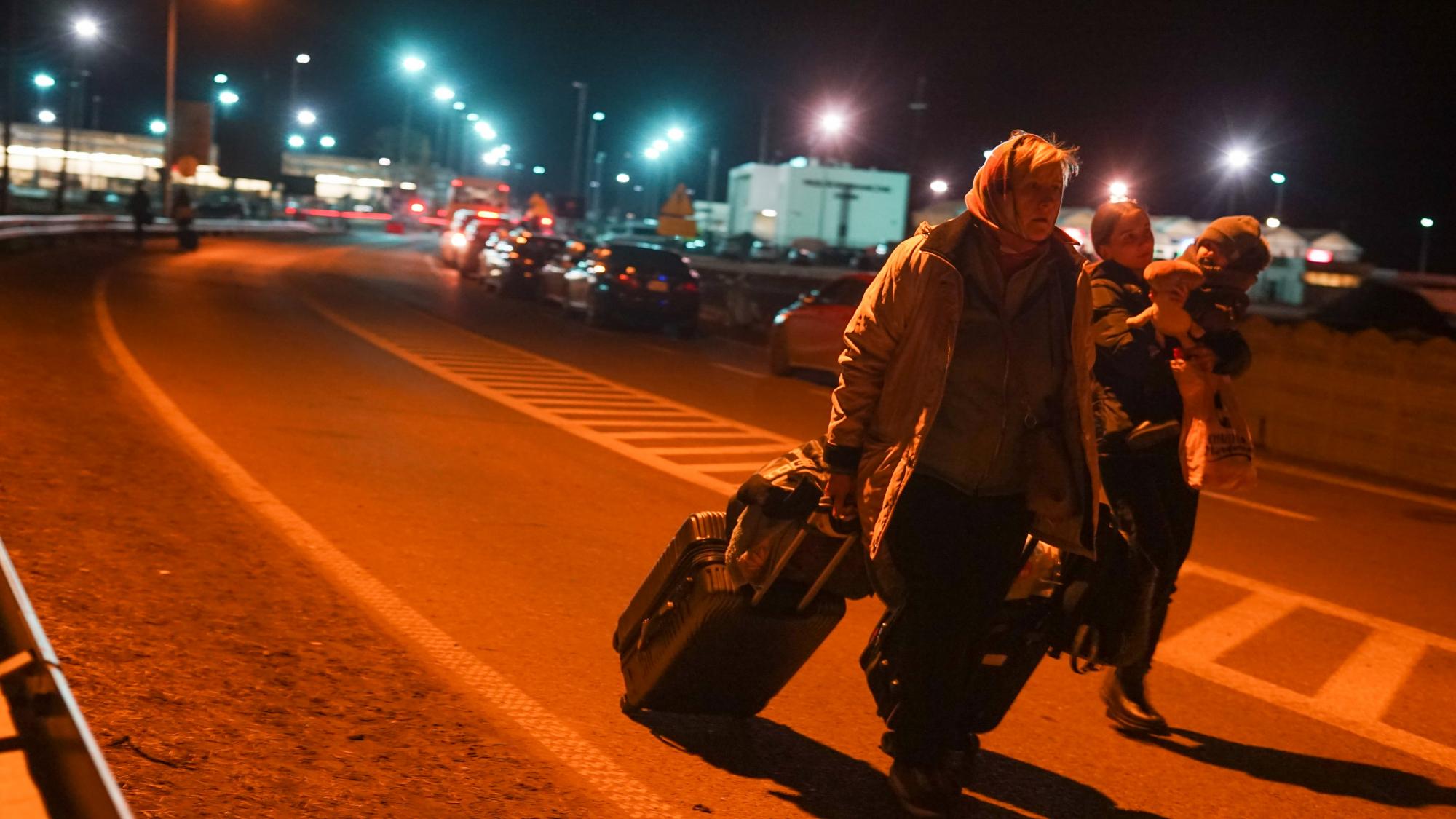 It was just past midnight, fiercely cold, in early March. We left a bar named "Pad" to smoke a cigarette in the main square of the old Polish city of Lublin, not far from the Ukrainian border, when an old man got out of his car and approached us, gesturing to ask for a lighter. He pointed proudly at himself and said, "Ukraine". My friend told him in Ukrainian that we came from Germany and that I am Syrian. The old man looked at me with bright grey eyes as if we had known each other for a thousand years. He smiled, and time froze. Then he said something to me in Ukrainian, which I don't speak, but I felt I understood.
It was just past midnight, fiercely cold, in early March. We left a bar named "Pad" to smoke a cigarette in the main square of the old Polish city of Lublin, not far from the Ukrainian border, when an old man got out of his car and approached us, gesturing to ask for a lighter. He pointed proudly at himself and said, "Ukraine". My friend told him in Ukrainian that we came from Germany and that I am Syrian. The old man looked at me with bright grey eyes as if we had known each other for a thousand years. He smiled, and time froze. Then he said something to me in Ukrainian, which I don't speak, but I felt I understood.
He knows that we escaped from the same beast.
I wanted to ask him if he knew how it burned our mothers' hearts, parched our beloved almond trees, wet our newborn babies' beds with blood, and deprived us of the scent of our grandmothers' laps. Then he clenched his fist towards me. Perhaps he said something like: “But this beast will not escape the wrath of our memory."
It was a moment that probably every war journalist experienced when the human connection of the moment overrides the drive to photograph or translate. The fleeting moment only existed between the two of us in that cold night in Lublin.
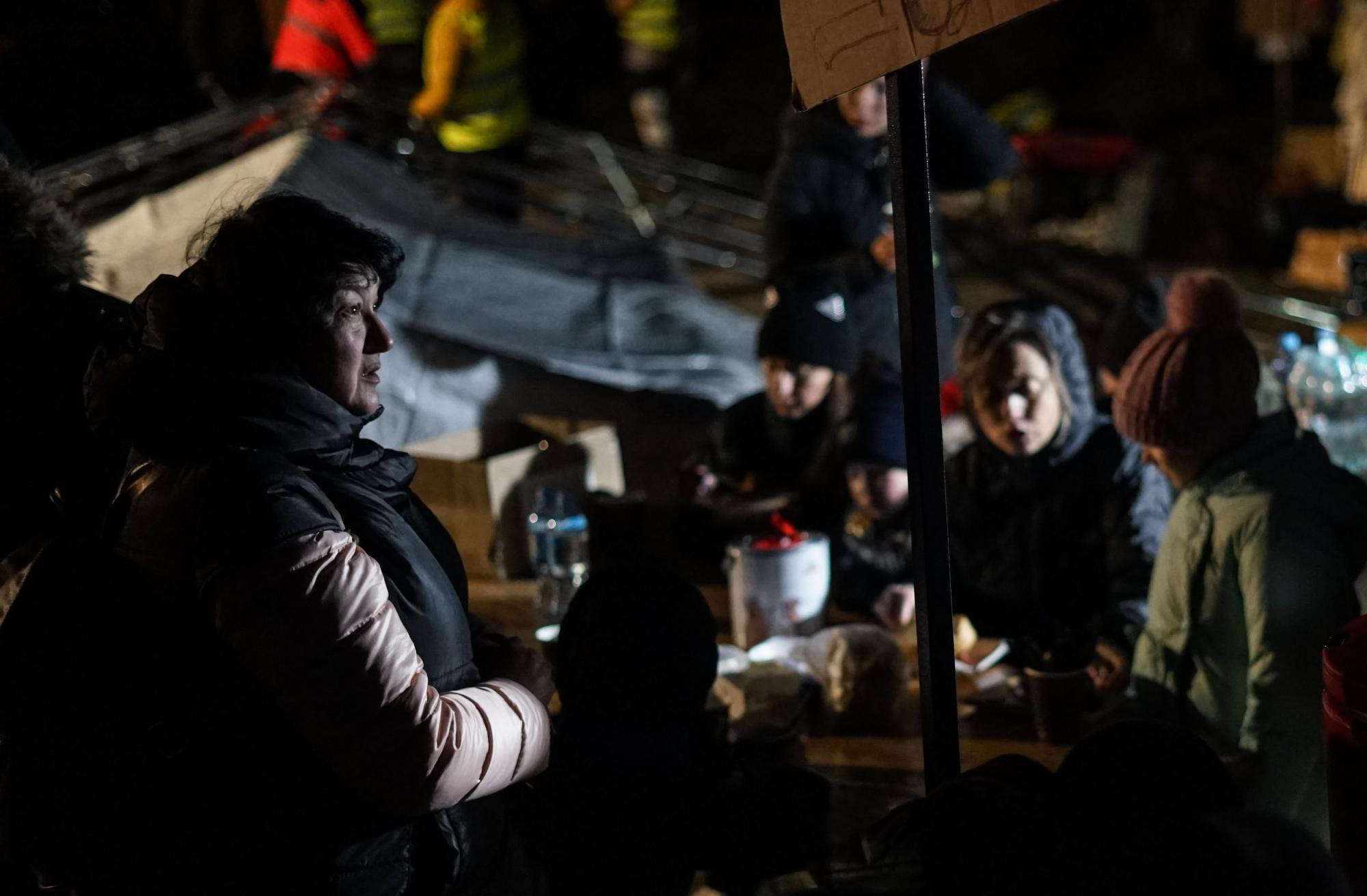 Seeing the sad eyes of a few elderly people gathering outside, far from home, anger, long-held deep inside flared up again. I thought of my family. Anger at the bitter imposition on old people forced to flee their land, those ancient trees, their gnarled roots ripped from the soil and left bare in the cold, dry air to die abandoned and exiled.
Seeing the sad eyes of a few elderly people gathering outside, far from home, anger, long-held deep inside flared up again. I thought of my family. Anger at the bitter imposition on old people forced to flee their land, those ancient trees, their gnarled roots ripped from the soil and left bare in the cold, dry air to die abandoned and exiled.
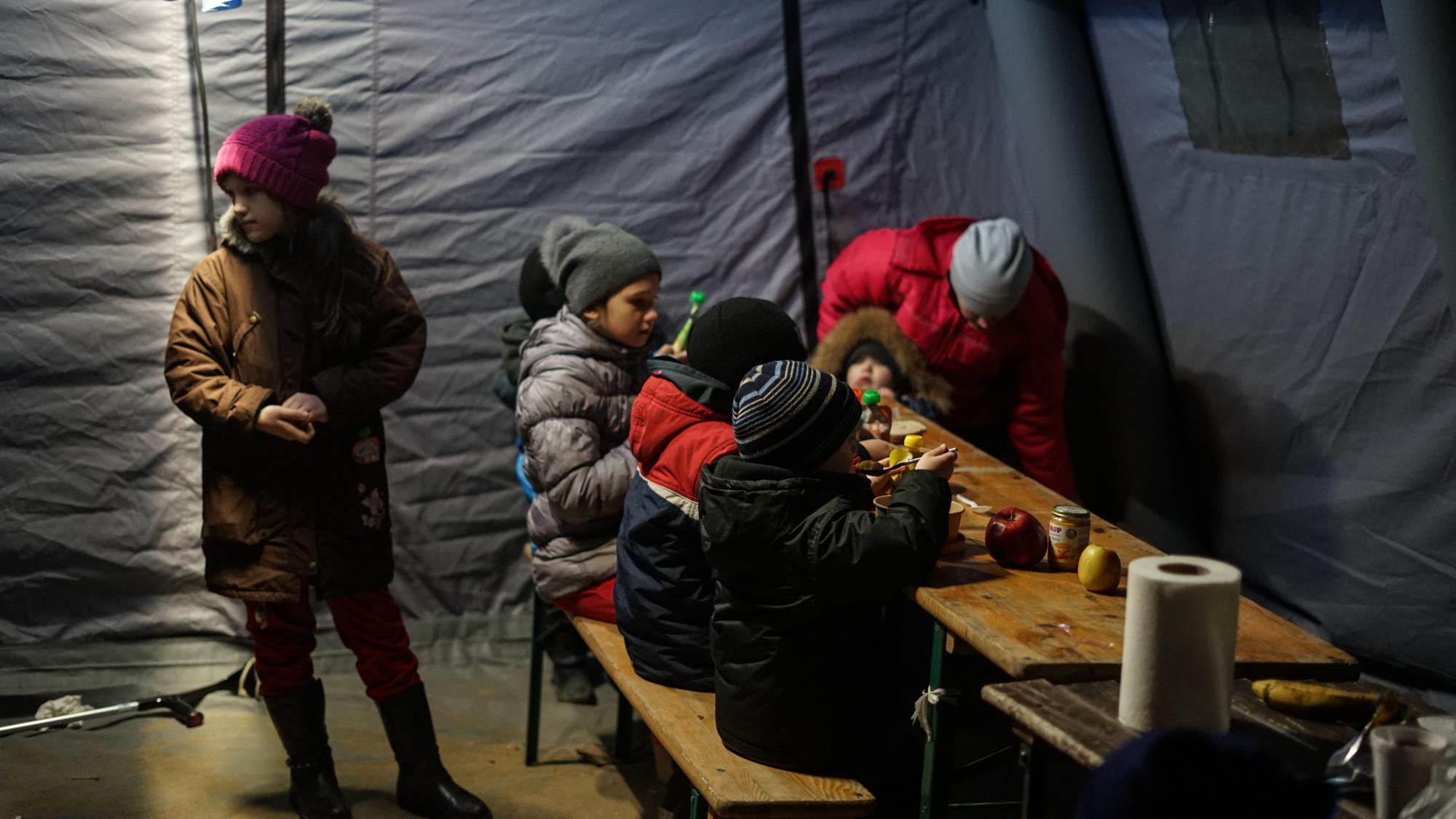 Someone asked me what I was doing here, and I answer with the usual platitudes about duty and solidarity. But in fact, I don't know what I'm doing here. Is it for petty revenge on the Russians, who burned everything I ever loved in front of my eyes? Or am I here to declare that Syrians are just as much givers of solidarity as the other volunteers to save what is left of our dignity? Or simply out of curiosity? Or is it because I'm nostalgic for the sense of freedom that I only feel when I directly impact the world around me.
Someone asked me what I was doing here, and I answer with the usual platitudes about duty and solidarity. But in fact, I don't know what I'm doing here. Is it for petty revenge on the Russians, who burned everything I ever loved in front of my eyes? Or am I here to declare that Syrians are just as much givers of solidarity as the other volunteers to save what is left of our dignity? Or simply out of curiosity? Or is it because I'm nostalgic for the sense of freedom that I only feel when I directly impact the world around me.
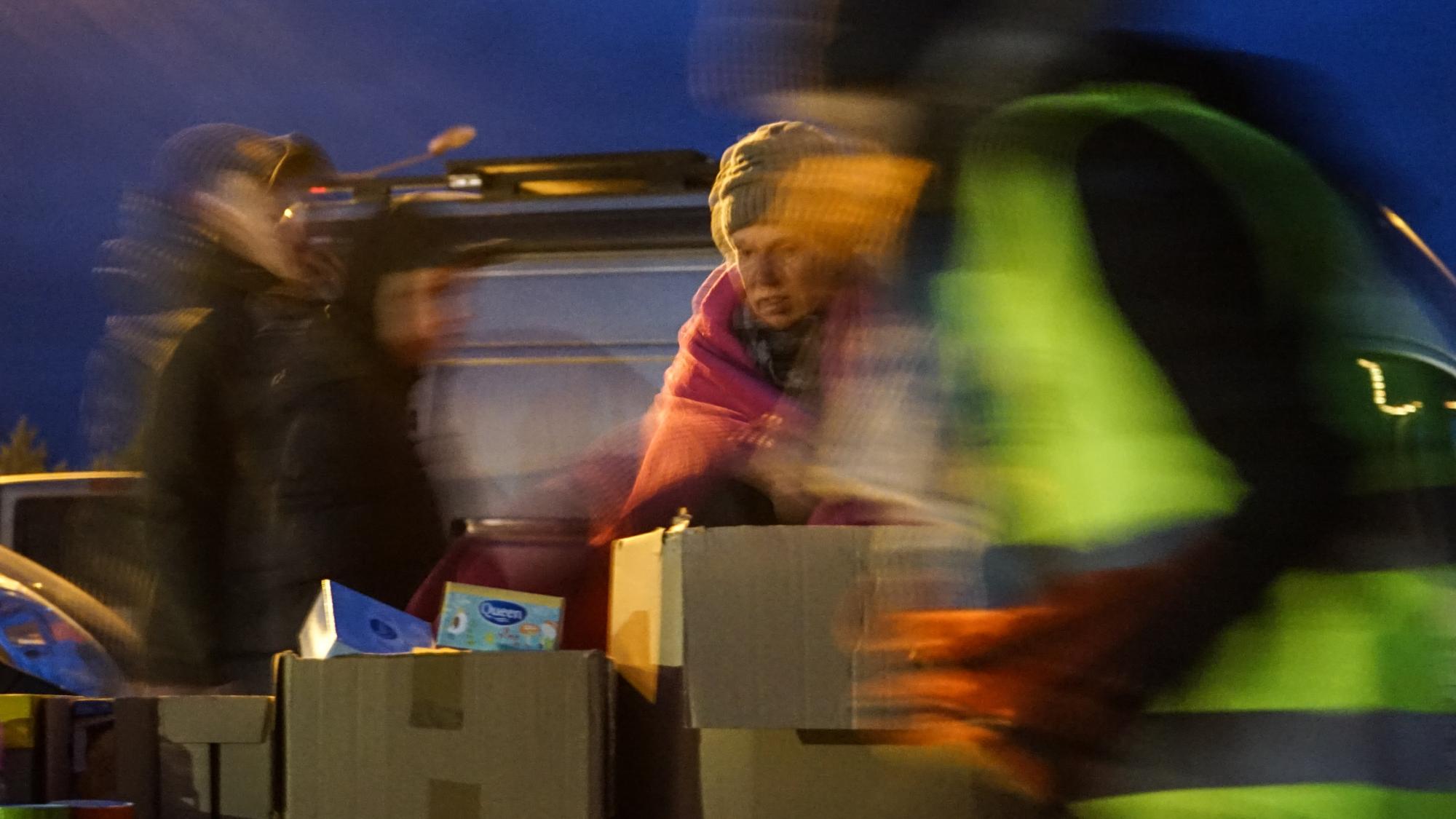 Suddenly, a memory appeared in my head, an ancient memory – even from before the war. The scene turned into a flood of images that I had seen before, images that had become shadows of an old dream. They looked like pieces of a broken mirror under my skin.
Suddenly, a memory appeared in my head, an ancient memory – even from before the war. The scene turned into a flood of images that I had seen before, images that had become shadows of an old dream. They looked like pieces of a broken mirror under my skin.
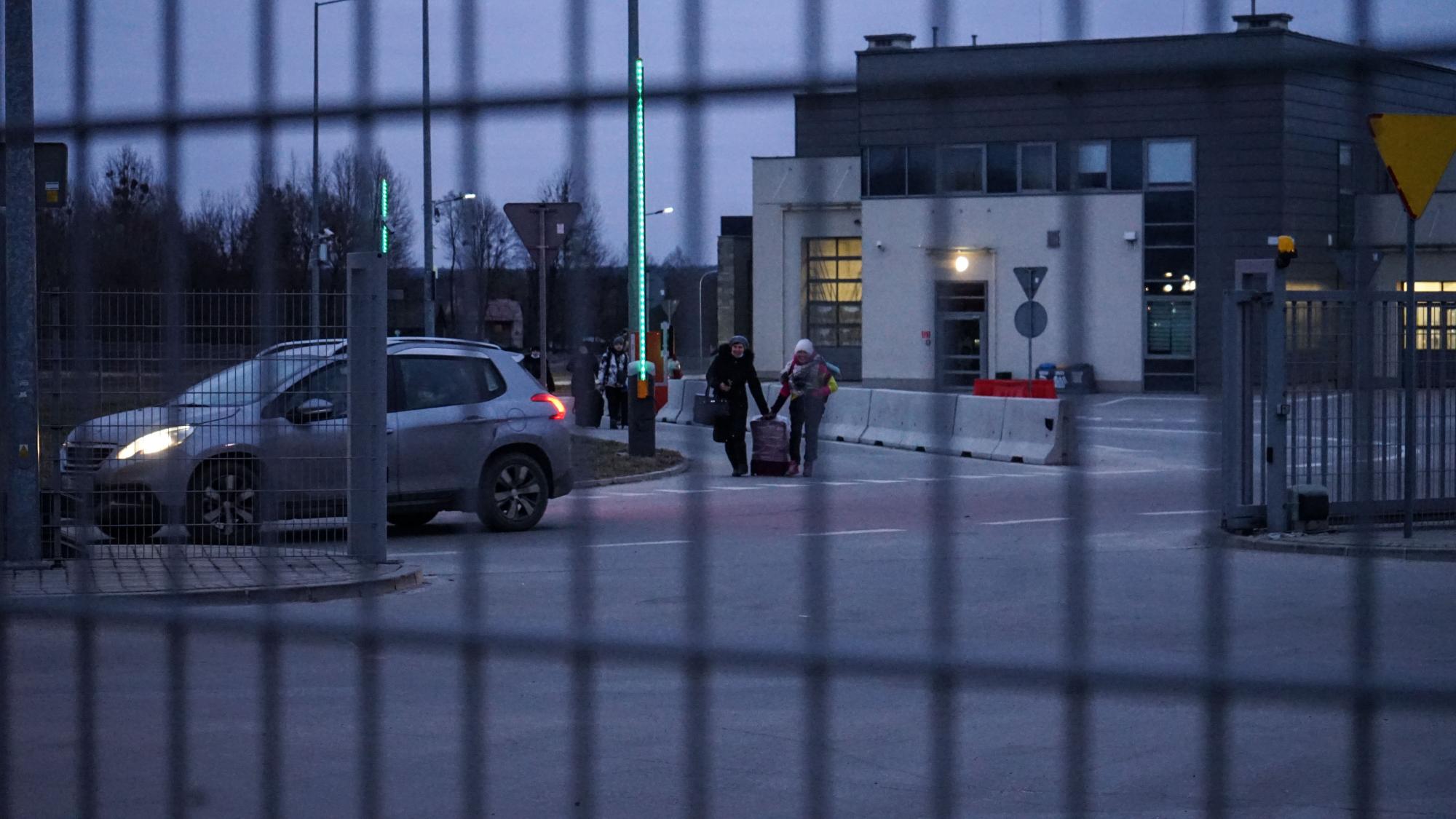 I felt a bitter sting of jealousy seeing the Ukrainian refugees. I caught myself thinking: ‘Your war may end soon and you will probably return to your warmth. But us Syrians, we’ll be stuck in time.‘ Then, a burn of sympathy flared up in my heart, and I reproached myself for having these thoughts. I know that what we feel through sympathy for the tragedies of others is never the real pain.
I felt a bitter sting of jealousy seeing the Ukrainian refugees. I caught myself thinking: ‘Your war may end soon and you will probably return to your warmth. But us Syrians, we’ll be stuck in time.‘ Then, a burn of sympathy flared up in my heart, and I reproached myself for having these thoughts. I know that what we feel through sympathy for the tragedies of others is never the real pain.
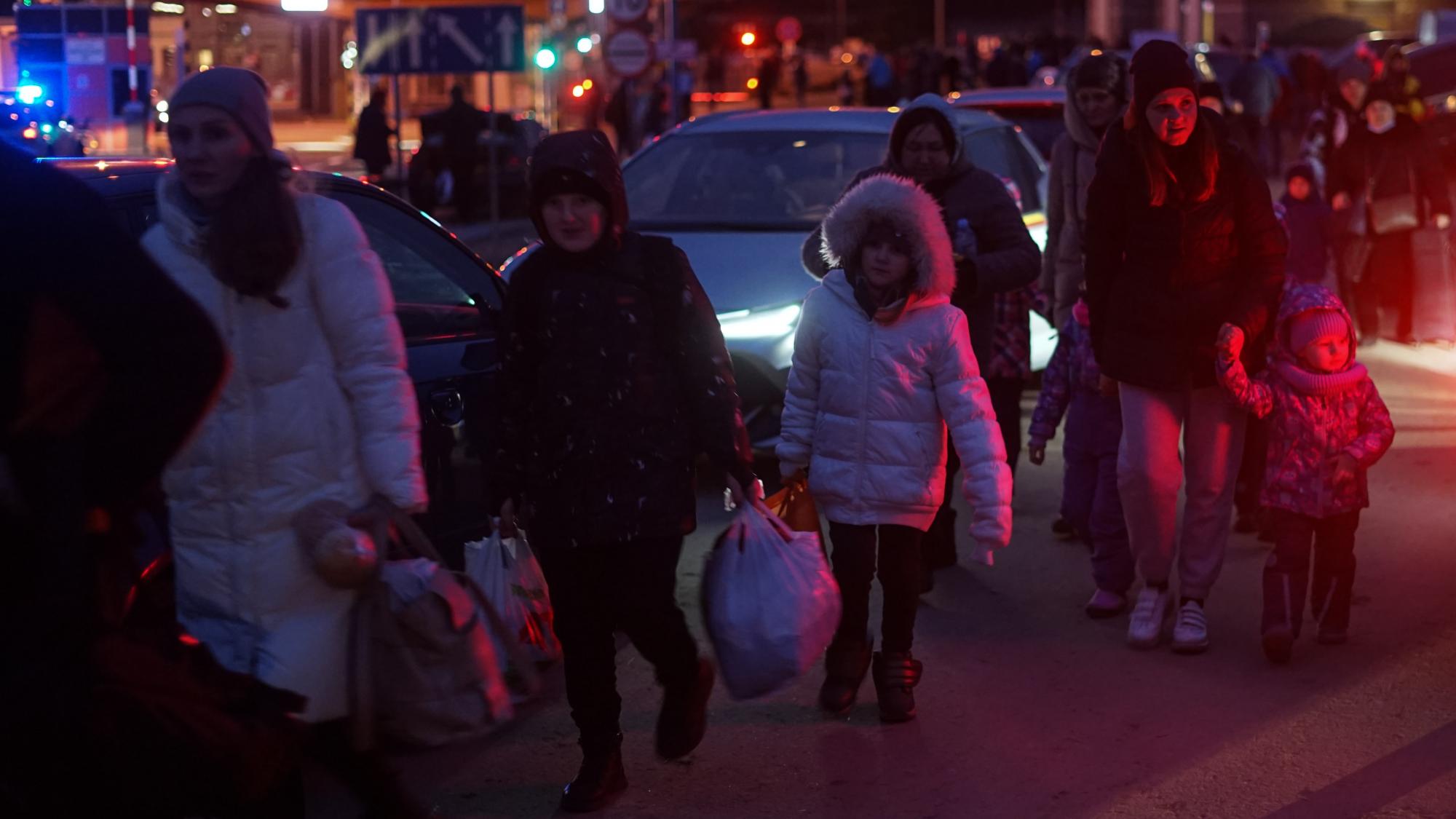 It seemed to me that the Ukrainians I met had not yet realized the magnitude of the disaster that has befallen them. They seem to be in denial. Their horror still looks fresh. They are still walking with their heads held high, dignity intact. They don't yet see the ocean of darkness waiting for them. And at least, European media did not label them as a "crisis". I whispered to myself.
It seemed to me that the Ukrainians I met had not yet realized the magnitude of the disaster that has befallen them. They seem to be in denial. Their horror still looks fresh. They are still walking with their heads held high, dignity intact. They don't yet see the ocean of darkness waiting for them. And at least, European media did not label them as a "crisis". I whispered to myself.

















